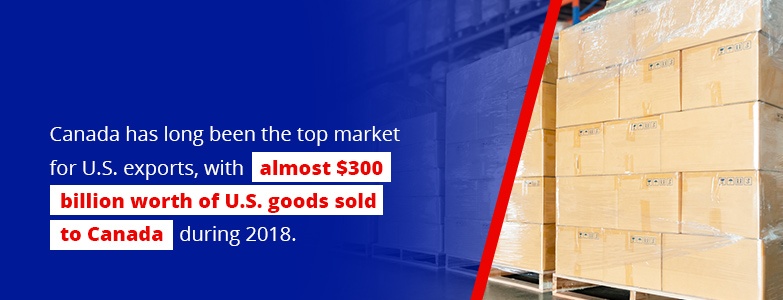Chapter 8: Using an Inexperienced Logistics Provider
It should go without saying, but integral to improving the U.S./Canadian clearance process, is to partner with a logistics company that has been there before. There is no substitute for experience when it comes to understanding and facilitating the clearance process.
Among the benefits of using a logistics partner that truly understands the clearance process:
- Trusted Trader program membership. Increased security risks have resulted in heightened screening and scrutiny at U.S./Canadian border entry points. This has resulted in increased inspections for all shipments, including those from “known” shippers that pose little risk. In response, both the U.S. and Canadian governments developed programs – referred to as “trusted trader” initiatives – that provide expedited clearance benefits to qualified members of the trade community. Each program is a voluntary partnership between private businesses and the government. In the United States, the program is called Customs-Trade Partnership Against Terrorism (C-TPAT), and Canada’s program is called Partners in Protection (PIP). Program participants undergo a rigorous application process in exchange for benefits that can facilitate the clearance process.
Among other things, trusted traders benefit from reduced shipment inspections, and enhanced access to customs officials.
- Awareness of documentation requirements. An experienced logistics provider will have no learning curve when it comes to understanding documentation and paperwork requirements. This includes insight about the precise information – and preferred format — needed to satisfy CBSA requirements, and deep knowledge about the many processes and procedures in place at the border.
- Awareness of “trade facilitation” programs. Although Canada’s Non-Resident Importer (NRI) program offers tremendous benefits to U.S. businesses doing business in Canada, a shipper must be aware of the program and register with CBSA. An experienced logistics provider will have knowledge about NRI and many other programs that can facilitate the clearance process. These opportunities include:
- Courier Low Value Shipment Program: Administered by CBSA, this program offers expedited clearance to shipments valued at less than $2,500 entering Canada via courier. This program is especially helpful in managing transit times of Canada bound e-commerce shipments.
- USMCA benefits: The North American Free Trade Agreement (USMCA) eliminates tariffs on all qualified products travelling between the United States, Canada and Mexico. Eligibility is determined through USMCA’s complex “rules of origin” that set specific standards for “domestic content” and other considerations. Determining eligibility can be quite difficult, since a product may contain percentages of components from non-USMCA countries and still qualify. As a result, many businesses rely on their experienced logistics provider or customs broker to determine eligibility and apply for benefits on their behalf.
- Seamless release of shipments. A shipment will not be officially “released” from CBSA’s control until all paperwork has been reviewed and customs agents are satisfied that the shipment presents no risk. An experienced logistics provider will have intricate knowledge of this process, including experience with the Pre-Arrival Review System (PARS), through which documentation is submitted electronically to CBSA ahead of time, so that shipments arrive at the border pre-cleared for entry.
- Cultural Familiarity. An experienced provider will be thoroughly familiar with all Canadian cultural nuances, as well as with federal and provincial mandates and regulations. Among other things, shipments will arrive in Canada in full compliance with requirements that labels be listed both in French and in English. French-speaking drivers will be used for last mile deliveries to predominantly French-speaking neighborhoods, and distances will be measured in kilometers, not miles.
- Customer Service. Whether your shipments are headed to Canada, China or anyplace else in the world, you need to ensure that your logistics provider prioritizes your business, and will provide high levels of service and oversight. Many providers still rely on a faceless 800-number as their front-line customer service offering. Instead, a business should take the time to seek out a logistics partner that provides dedicated customer service representatives who will understand your business’s specific needs, and be easily accessible should a problem arise. A dedicated service representative can be especially helpful should a shipment experience a customs-related delay.
Canada has long been the top market for U.S. exports, with almost $300 billion worth of U.S. goods sold to Canada during 2018. In recent years, U.S. exports have been buoyed by Canadian consumers’ affinity for online shopping, with an estimated two-thirds of Canadian e-commerce dollars going to U.S. retailers.
Clearly then, there is opportunity for U.S. businesses in the Canadian market. But with that opportunity comes an unavoidable need to successfully navigate the border clearance process. As this discussion makes clear, there can be formidable challenges in avoiding customs delays. But with a little planning, and a good logistics partner on your side, most delays can be prevented, or significantly mitigated. And that means an open road for U.S. businesses interested in the Canadian market.
Table of Contents
- Eight Common Reasons for Canadian Customs Delays
- Chapter 2: Incorrect Tariff Classification Codes
- Chapter 3: Incorrect Product Valuation
- Chapter 4: Incorrect Shipping Term Selected
- Chapter 5: Failure to Take Advantage of Canada’s Non-Resident Importer Program
- Chapter 6: Non-Compliance with Canadian Packaging and Labeling Requirements
- Chapter 7: Failure to Obtain Approvals from “Other Government Departments and Agencies"
- Chapter 8: Using an Inexperienced Logistics Provider

